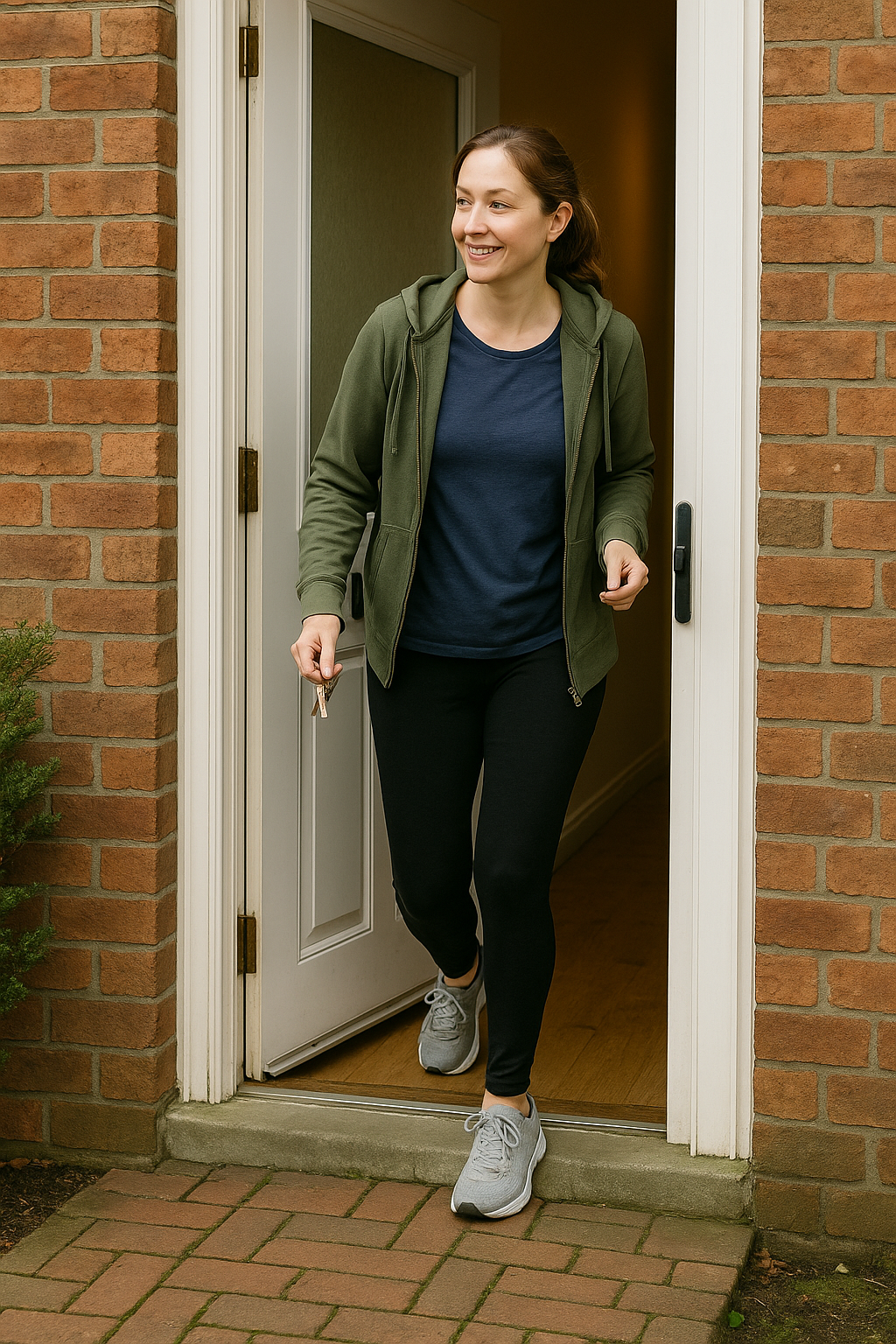How to Overcome the Mental Barriers to Walking
Walking is one of the simplest, most accessible, and rewarding activities we can do for our physical and mental health. Yet, for many of us, the biggest obstacle isn’t finding the right boots or choosing the right route, it’s getting past the thoughts in our own head.
We know that walking can improve mood, reduce stress, support weight management, and even help us connect with others. But when life feels heavy, when motivation disappears, or when doubts creep in, even a short walk around the block can feel like climbing a mountain.
If this sounds familiar, you’re not alone. Every walker, from the seasoned hiker to the nervous beginner, has faced mental barriers that hold them back. The good news? These barriers can be recognised, understood, and overcome.
In this blog, we’ll look at the most common mental blocks that stop people from walking and share practical, compassionate strategies to get you lacing up and stepping outside.
1. “I Don’t Have the Time”
Time is the excuse that shows up again and again. Work, family, house chores, and endless responsibilities make it easy to convince ourselves that walking is a luxury we can’t afford.
But, walking doesn’t need to take hours. Even ten minutes counts. A brisk walk round the block, a loop of the park while dinner is in the oven, or walking to the shop instead of driving. These little pockets of movement add up.
How to reframe it:
Think of walking as an investment, not a time drain. The energy, focus, and calm it brings will actually help you do everything else more effectively.
Start small. Give yourself “permission” to just walk for five minutes. Most of the time, once you’re outside, you’ll keep going.
Pair walking with something else you value: listening to a podcast, chatting with a friend, or noticing the change of seasons.
When you change the story from “I don’t have time” to “I’ll make time for just a few minutes,” the barrier shrinks.
2. “I Don’t Feel Motivated”
Motivation is a slippery thing. Some days you’ll feel inspired and raring to go; other days you’ll struggle to get off the sofa. Waiting for motivation is like waiting for sunshine in Scotland, you’ll be stuck indoors more often than not.
How to move forward without motivation:
Build a routine. Walking at the same time each day turns it into a habit rather than a decision.
Focus on discipline over desire. You don’t need to want to walk, you just need to start.
Use accountability. Walk with a friend, post in a group like SWWG, or set a challenge for yourself.
Motivation grows from action, not the other way round. The first few steps create the momentum you were waiting for.
3. “I’m Not Fit Enough”
Many women hold themselves back because they feel they aren’t fit enough to join a group walk or even start walking regularly. Thoughts like “I’ll slow everyone down” or “I’ll look out of place” creep in.
But walking isn’t about being the fastest or the fittest. It’s about showing up as you are. Every walker starts somewhere, and the only way to build fitness is by starting with what you can do today.
How to overcome it:
Begin where you are. Even a gentle ten minute stroll is valuable.
Remember that groups like SWWG are built to be inclusive, nobody is left behind.
Focus on progress, not comparison. Your walk today doesn’t need to look like anyone else’s.
You’re not behind, you’re simply at the beginning of your own path.
4. “The Weather Puts Me Off”
Ah, the great Scottish weather. Rain, wind, sleet, mud. It’s easy to let the forecast dictate your activity. But if you wait for perfect conditions, you’ll rarely get outside.
How to face it:
Invest in decent waterproofs and layers. Good kit transforms a miserable trudge into an adventure.
Reframe the weather as part of the experience. Mist makes a loch look mysterious, rain makes the colours richer, and a light wind can make you feel alive.
Start with short walks on “bad” days. You’ll soon realise that a bit of drizzle isn’t as off putting as your brain made it seem.
Some of the most joyful walks happen in weather that looks terrible on paper.
5. “I Don’t Deserve to Take Time for Myself”
Many women struggle with guilt when it comes to prioritising their own wellbeing. Walking feels selfish when there are kids to feed, houses to clean, or work to finish. But you can’t pour from an empty cup. When you take time to walk, you return calmer, more energised, and better able to support those around you. Walking is not indulgence, it’s self-maintenance.
Practical tip: Schedule your walk as you would any other appointment. Protect that time, because you are worthy of it.
6. “I’ll Look Silly Walking Alone”
Worrying about what others think is a powerful mental barrier. Some women feel self-conscious walking alone, imagining people staring or judging. The truth? Most people are too busy with their own lives to pay much attention. And even if they do notice, what they’ll actually see is someone strong enough to prioritise their health.
How to ease the discomfort:
Start small: try a familiar loop near your home before venturing further.
Take headphones, a camera, or even a notebook to give your walk a “purpose.”
Remember that solo walking is empowering, it builds confidence in a way nothing else can.
You don’t look silly. You look brave.
7. “It Won’t Make a Difference”
When you’re struggling with your mood, weight, or energy, it’s easy to dismiss walking as “too little to matter.” But research consistently proves otherwise. Walking boosts serotonin, lowers stress hormones, strengthens the heart, and helps regulate blood sugar.
Small steps lead to big changes.
Reframe the thought: Instead of thinking, “It’s only a short walk,” remind yourself, “This short walk is exactly how progress begins.”
8. The Inner Critic: “I Can’t Stick to Anything”
For many women, the harshest voice is the one inside their own head. Past experiences of starting and stopping can create the belief that you’re doomed to fail. But your past doesn’t define your future. Each day is a chance to begin again and walking is forgiving. You don’t need perfection, you just need persistence.
How to silence the critic:
Focus on the next step, not the next month.
Keep a journal of your walks. Recording even small efforts helps you see progress.
Practice self-compassion. You wouldn’t call a friend a failure for missing a day so don’t do it to yourself.
9. Community Makes the Difference
One of the most powerful antidotes to mental barriers is community. When you walk with others, the doubts and excuses lose their power. You’ve got encouragement, accountability, and laughter to carry you forward.
That’s exactly why Scottish Women’s Walking Group exists - to connect women across Scotland and beyond, creating spaces where everyone feels welcome. If you’ve been hesitating to join a walk, consider this your invitation. You might arrive nervous, but you’ll leave uplifted.
10. Turning Barriers Into Gateways
Every barrier you face can be flipped into a reason to walk:
No time? A short walk is better than none.
No motivation? Start anyway, and let the movement spark it.
Not fit enough? Walking is how you’ll build fitness.
Bad weather? It makes the adventure more memorable.
Feeling guilty? You’ll return stronger for others.
Afraid to walk alone? That’s how confidence is built.
Each excuse can be turned on its head, if you give yourself the chance.
Overcoming mental barriers isn’t about bulldozing through with sheer willpower. It’s about listening to your thoughts, gently challenging them, and creating new patterns that support your wellbeing. Walking is not a race, a competition, or a punishment. It’s a gift you give yourself, one step, one breath, one moment at a time.
The next time your mind throws up an excuse, remember: you don’t need to conquer the whole mountain. You just need to take the first step. And that step can change everything. So lace up, step outside, and meet yourself where you are. The path is waiting.


